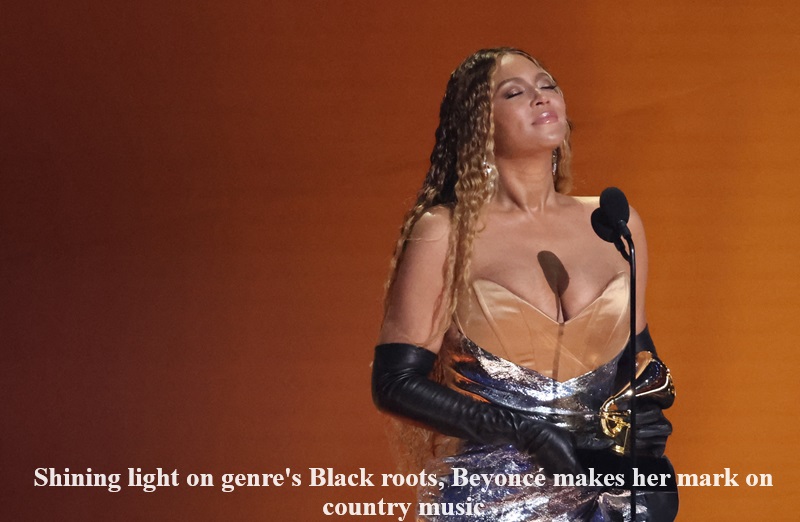
Denitia, a Texas native and singer-songwriter now residing in Nashville, felt a profound connection upon hearing the initial chords of Beyoncé’s popular country song, “Texas Hold ‘Em.”
However, it wasn’t just the infectious, captivating rhythm of the banjo that captured Denitia’s attention; it was also an overdue recognition of the extensive history of Black country music artists and their enduring legacies.
“Beyoncé’s success in country music is shedding light on the history of Black individuals in the genre, highlighting our role in its creation, our contributions, and our presence as devoted listeners and fans of country music,” Denitia expressed. “We have been part of country music from its inception, and we continue to be integral to its fabric.”
Observers and enthusiasts regard Beyoncé’s exploration of the genre as a reclaiming and homage to the legacy of Black Americans within country music and its culture – a legacy often overlooked in mainstream music circles. They assert that Beyoncé, hailing from Houston, Texas, is following in the footsteps of numerous esteemed Black country music pioneers who preceded her.
From historical figures like Lesley “Esley” Riddle and Charley Pride, who shattered barriers, to contemporary artists such as Mickey Guyton, Jimmie Allen, and Rhiannon Giddens, who incorporate the banjo – an instrument with West African origins – into their music, the influence of Black artists resonates throughout “Texas Hold ‘Em.”
“Despite the predominantly white nature of the country music industry and spaces like bars and festivals, Black artists have been instrumental in shaping the genre’s roots,” stated Francesca T. Royster, an associate professor of English at DePaul University, where she focuses on Shakespeare, film, and Black feminism.
“The narrative surrounding country music often portrays it as inherently white and nostalgic, but in reality, the contributions of Black, Indigenous, and Latinx individuals are integral to its sound.”

Post Your Comments